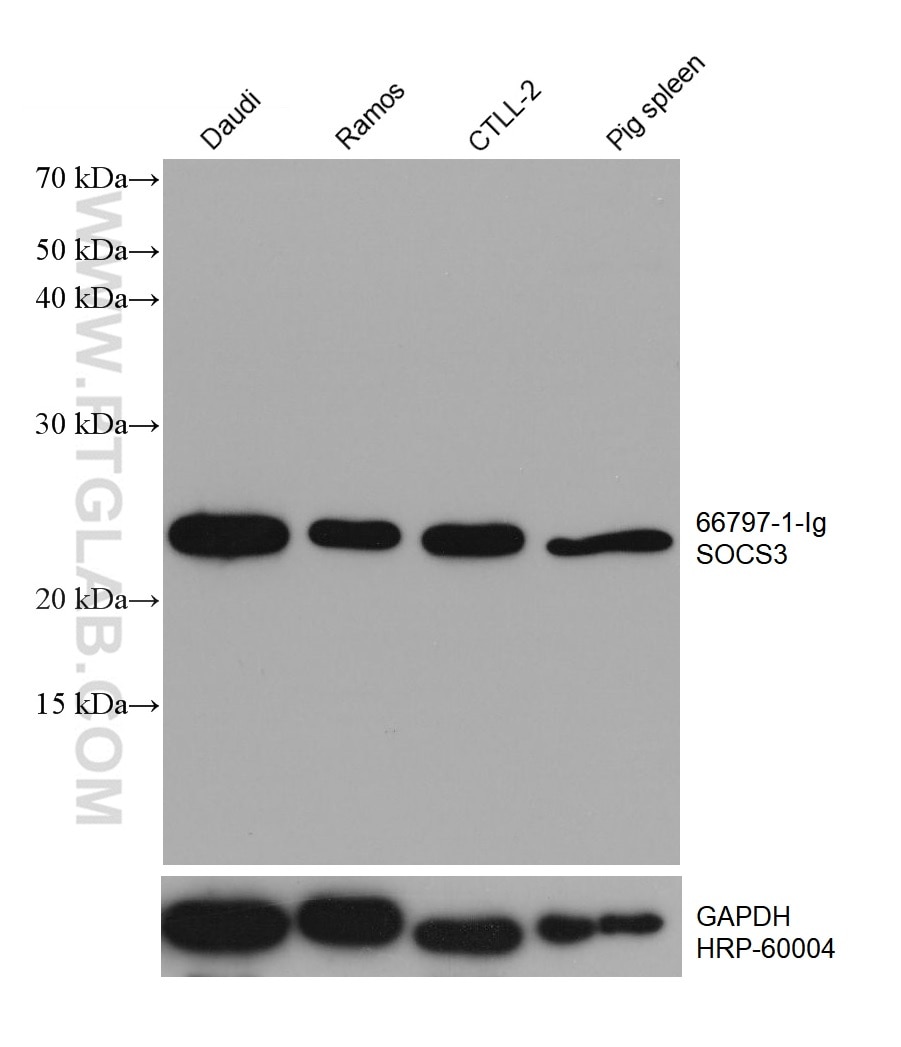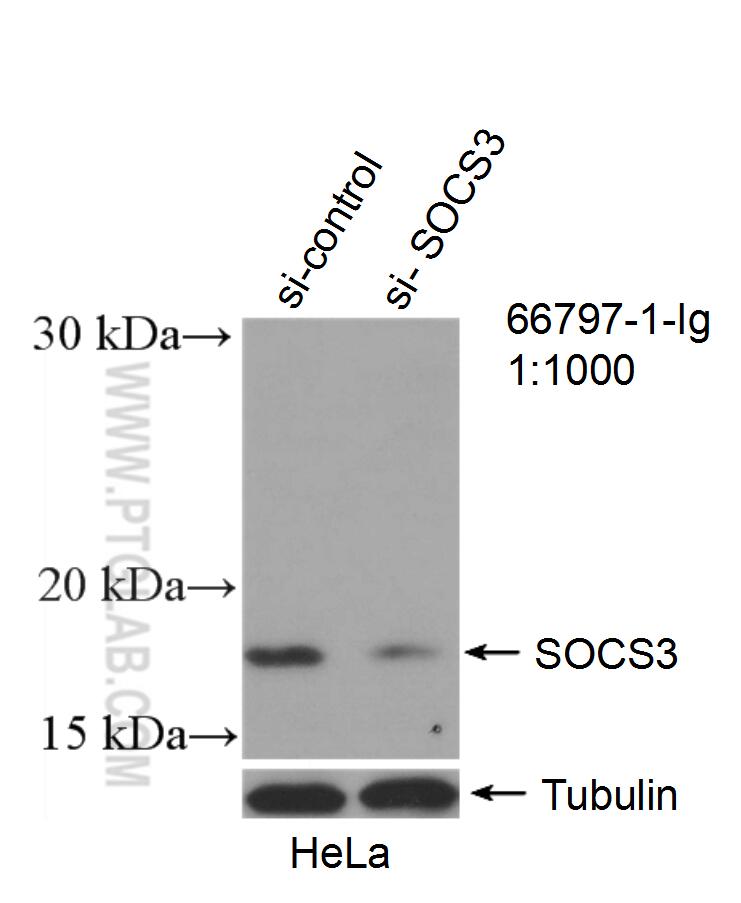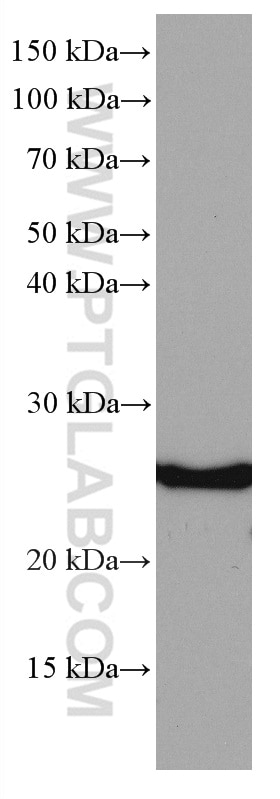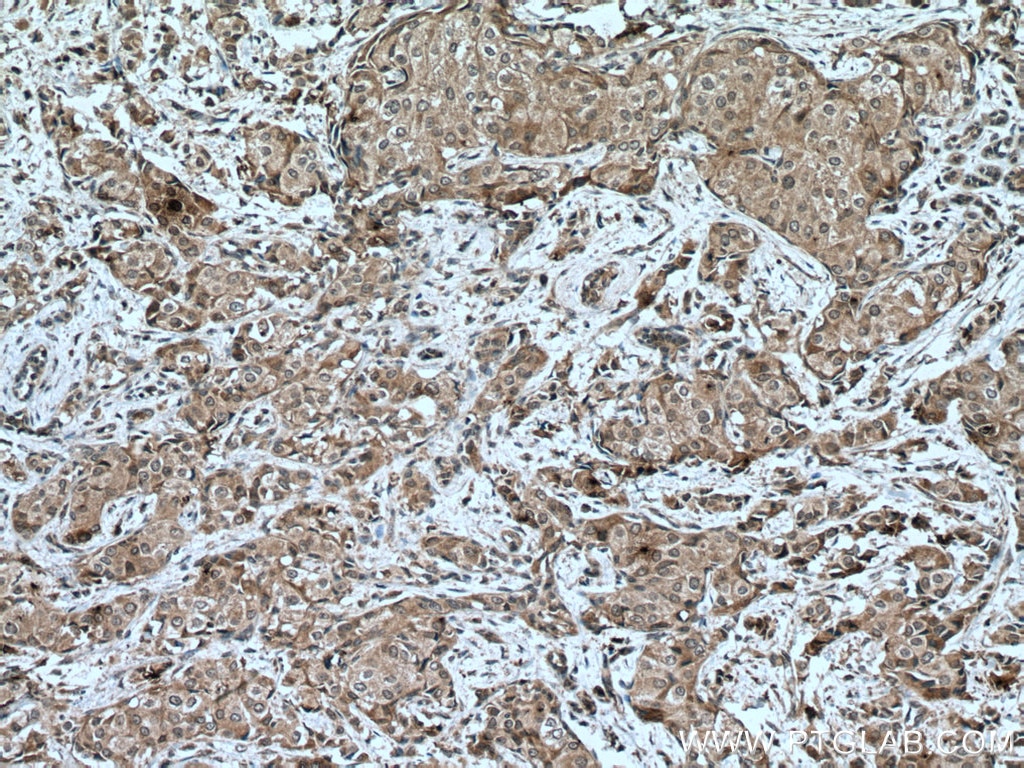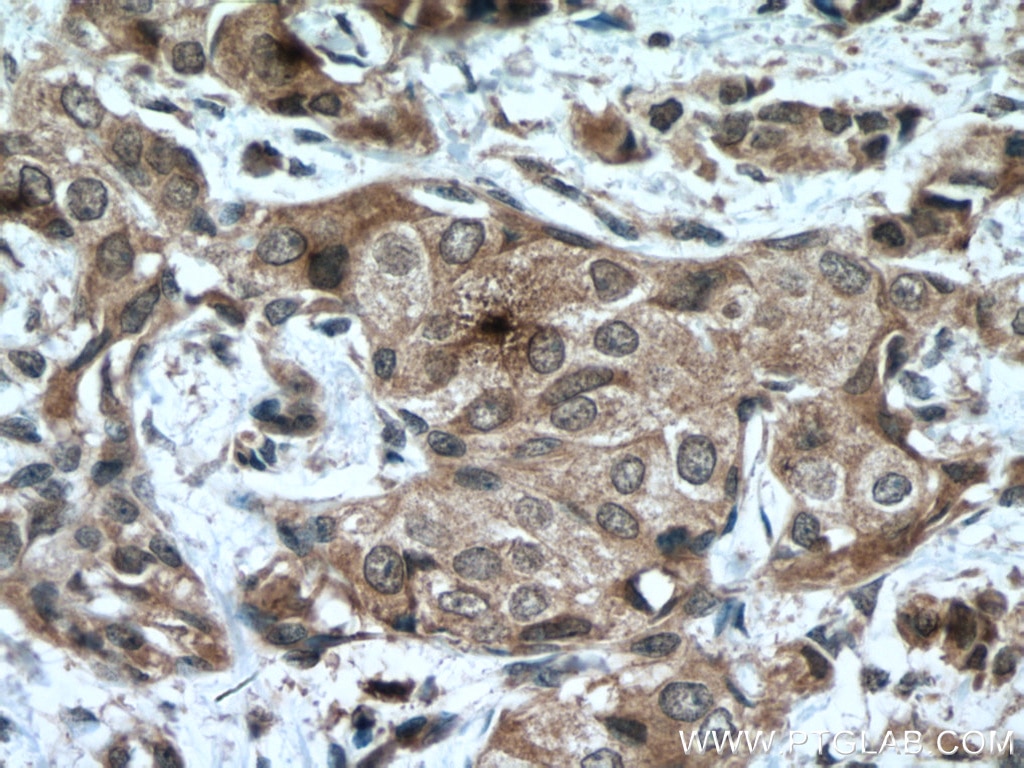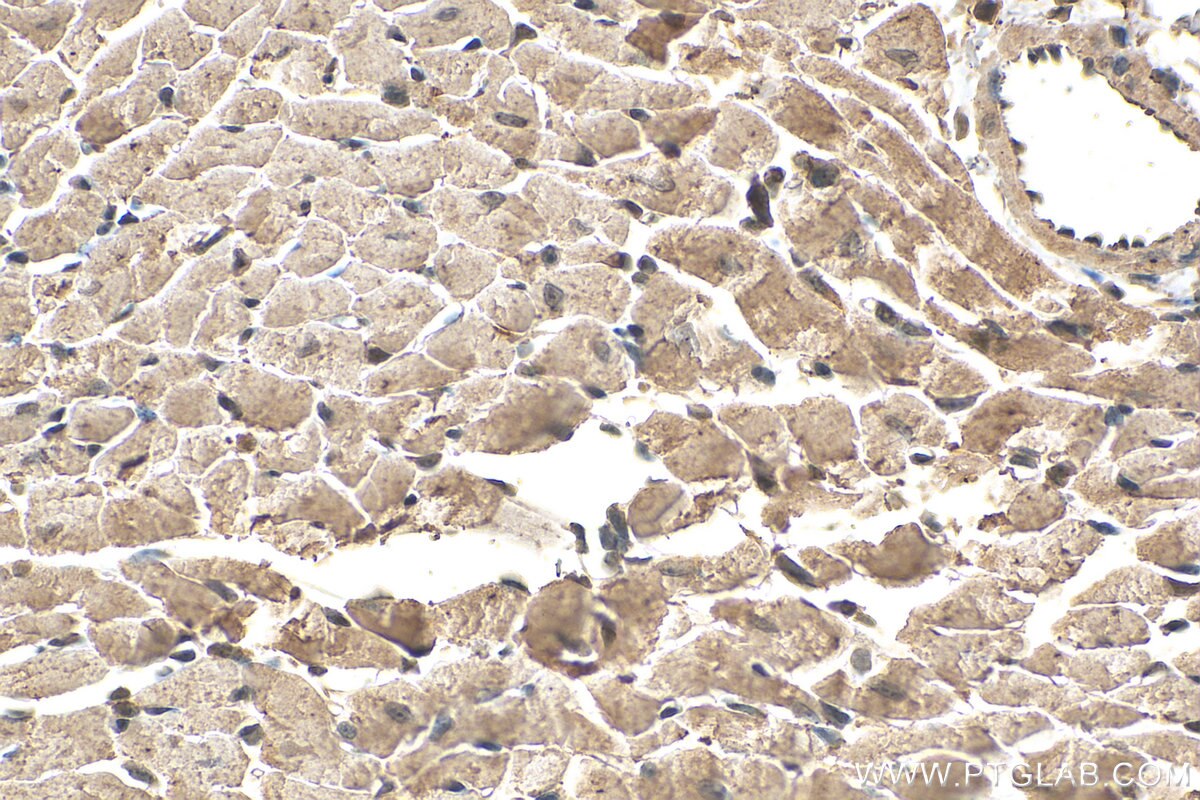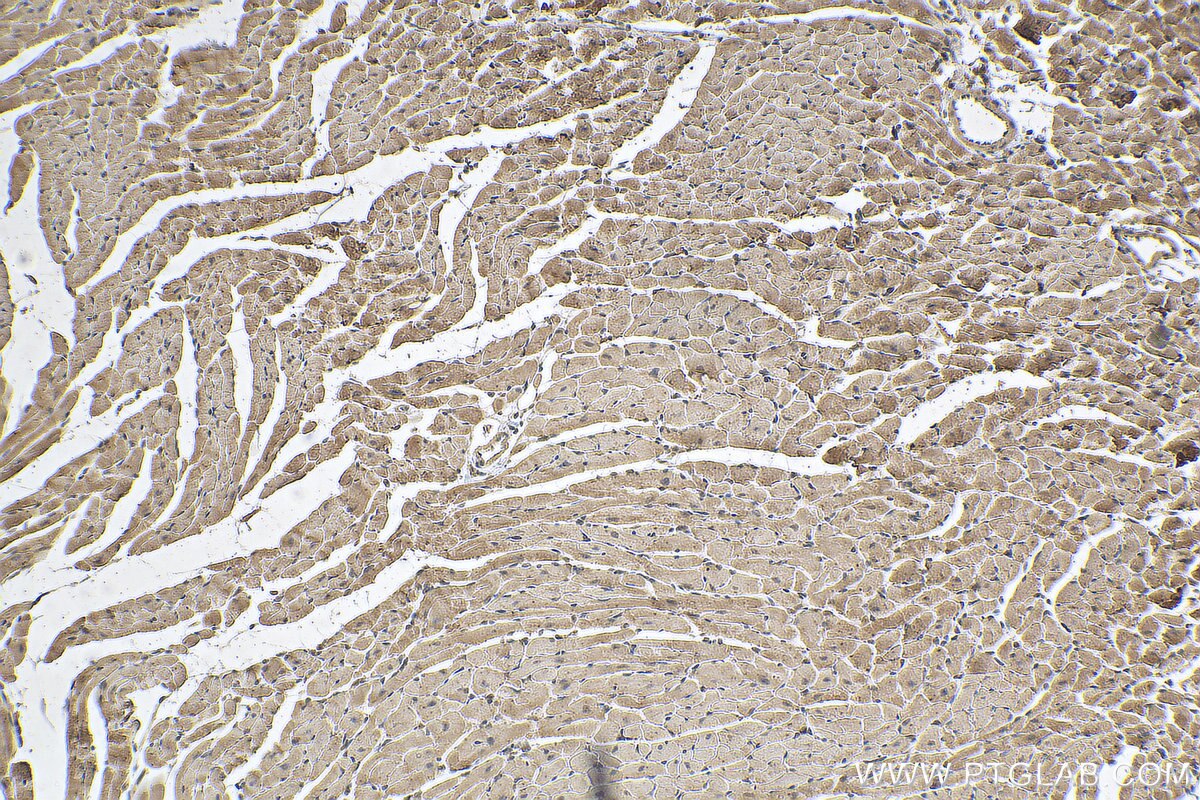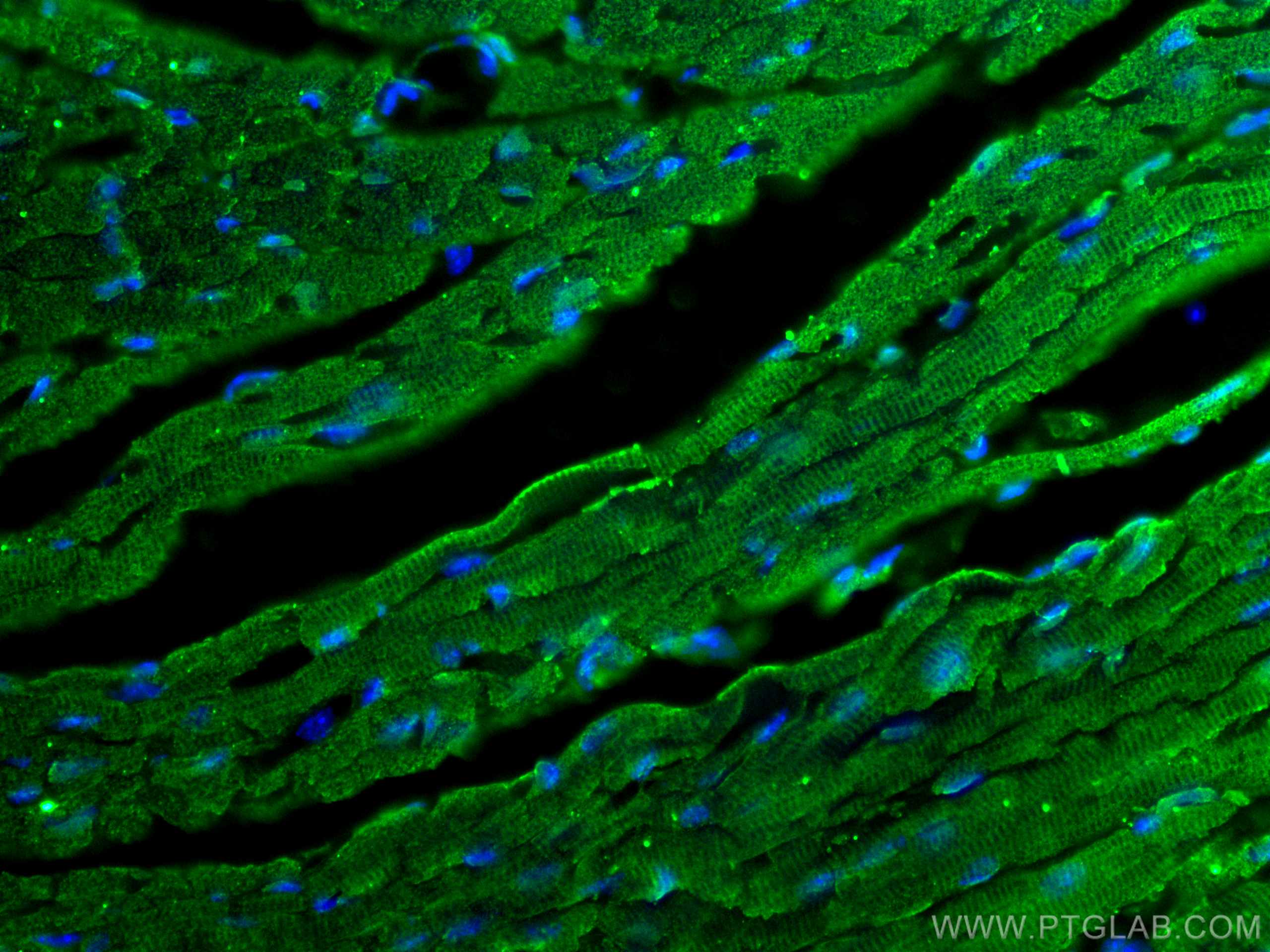Validation Data Gallery
Tested Applications
| Positive WB detected in | Daudi cells, Jurkat cells, HeLa cells, Ramos cells, CTLL-2 cells, pig spleen tissue |
| Positive IHC detected in | human breast cancer tissue, mouse heart tissue Note: suggested antigen retrieval with TE buffer pH 9.0; (*) Alternatively, antigen retrieval may be performed with citrate buffer pH 6.0 |
| Positive IF-P detected in | mouse heart tissue |
Recommended dilution
| Application | Dilution |
|---|---|
| Western Blot (WB) | WB : 1:5000-1:50000 |
| Immunohistochemistry (IHC) | IHC : 1:250-1:1000 |
| Immunofluorescence (IF)-P | IF-P : 1:400-1:1600 |
| It is recommended that this reagent should be titrated in each testing system to obtain optimal results. | |
| Sample-dependent, Check data in validation data gallery. | |
Published Applications
| KD/KO | See 1 publications below |
| WB | See 15 publications below |
| IHC | See 2 publications below |
| IF | See 2 publications below |
| IP | See 1 publications below |
Product Information
66797-1-Ig targets SOCS3 in WB, IHC, IF-P, IP, ELISA applications and shows reactivity with Human, mouse samples.
| Tested Reactivity | Human, mouse |
| Cited Reactivity | human, mouse, rat |
| Host / Isotype | Mouse / IgG1 |
| Class | Monoclonal |
| Type | Antibody |
| Immunogen | SOCS3 fusion protein Ag5386 相同性解析による交差性が予測される生物種 |
| Full Name | suppressor of cytokine signaling 3 |
| Calculated molecular weight | 25 kDa |
| Observed molecular weight | 25 kDa |
| GenBank accession number | BC060858 |
| Gene Symbol | SOCS3 |
| Gene ID (NCBI) | 9021 |
| RRID | AB_2882141 |
| Conjugate | Unconjugated |
| Form | Liquid |
| Purification Method | Protein A purification |
| UNIPROT ID | O14543 |
| Storage Buffer | PBS with 0.02% sodium azide and 50% glycerol pH 7.3. |
| Storage Conditions | Store at -20°C. Stable for one year after shipment. Aliquoting is unnecessary for -20oC storage. |
Background Information
Suppressor of cytokine signaling 3 (SOCS3) is a member of SOCS family that these proteins induced to attenuate cytokine signal transduction in response to signals from a diverse range of cytokines and growth factors. SOCS3 is a negative regulatory protein that inhibits signaling induced by IL-6 via preventing JAK mediated activation of STAT3. However SOCS3 can positively regulate the ERK-MAPK pathway, inhibit the NF-kB pathway (PMID:26429311,25035930). In addition, SOCS3 brings a great impact on immune responses by inhibiting signaling stimulus, such as LPS, type I and type II IFNs, and IL-12. SOCS3 is widely expressed in heart, placenta, skeletal muscle, peripheral blood leukocytes, fetal and adult lung, and fetal liver and kidney (PMID: 22961088). Dysregulation of SOCS3 functions can cause a variety of diseases, including allergy, autoimmune diseases, inflammation and cancer (PMID:26429311).
Protocols
| Product Specific Protocols | |
|---|---|
| WB protocol for SOCS3 antibody 66797-1-Ig | Download protocol |
| IHC protocol for SOCS3 antibody 66797-1-Ig | Download protocol |
| IF protocol for SOCS3 antibody 66797-1-Ig | Download protocol |
| Standard Protocols | |
|---|---|
| Click here to view our Standard Protocols |
Publications
| Species | Application | Title |
|---|---|---|
Acta Pharmacol Sin Epac activation ameliorates tubulointerstitial inflammation in diabetic nephropathy.
| ||
Int J Mol Sci Leptin Modulates the Response of Brown Adipose Tissue to Negative Energy Balance: Implication of the GH/IGF-I Axis. | ||
J Ethnopharmacol Simiao San alleviates hyperuricemia and kidney inflammation by inhibiting NLRP3 inflammasome and JAK2/STAT3 signaling in hyperuricemia mice | ||
Mol Nutr Food Res Single Treatment of Vitamin D3 Ameliorates LPS-Induced Acute Lung Injury through Changing Lung Rodentibacter abundance. |
